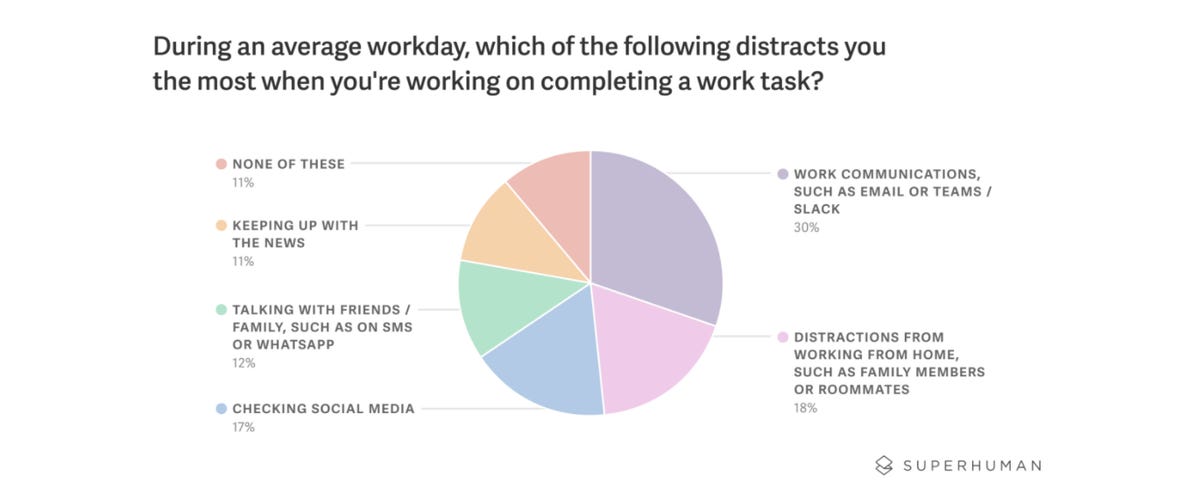Over one-third of employees say email and message overload may lead them to quit their jobs, according to a new report.
Companies are planning whether to reopen their offices for a mass return to in-office working, encourage their employees to stay remote or introduce a hybrid work model once the pandemic ends.
Now new research reveals that the rising number of emails, messages and video meetings associated with remote work is leading to a growing level of employee burnout and job dissatisfaction.
San Francisco, CA- based email software provider Superhuman, has released the results of a new survey that examines how the pandemic and shift to remote work are impacting employee satisfaction with their jobs.
The survey was conducted by Wakefield Research in March 2021 who polled 1,000 US-based office professionals online who are currently working from home.
Over a year of working from home is leading to a concerning change to our relationship with our jobs.
Over one in four office workers (27%) say that they are enjoying work less since the start of the pandemic. And women are 75% more likely than men to say they enjoy work less now than they did pre-pandemic.
Seven in ten women think the pandemic will slow their career progression and feel that they need to respond quickly and prove commitment — a worry sure to impact on women’s job satisfaction and enjoyment.
The survey revealed that almost nine out of ten office workers (89%) say that daily work tasks such as sorting through an inbox of unopened emails or navigating incoming Slack or Teams messages is one of the most unpleasant parts of working remotely.
Over one-third of office workers say this ’email fatigue’ is likely to push them to quit their jobs.
One in three (33%) of employees say an excess of video calls is the most unpleasant part of remote work. Over two in five (44%) of remote workers dream of the day without video calls and one in four (25%) crave a notification-free day.

Before the pandemic, there was concern that this type of remote work would lead to distractions from family and roommates, but almost one in five (18%) of office workers say family or roommates are diverting their attention.
Almost one in three office workers (30%) say emails and workplace communications are their top distractors.
Almost two in five (38%) of office workers say email or chat is the remote work nuisance most likely to lead them to quit their jobs.
This sentiment seems to be more pronounced among younger workers. For office workers 40 or under, over half (51%) list the volume of emails and Slack or Teams messages they receive as a top reason for why they would consider leaving their jobs.

Over half (54%) of respondents said that they would rather commute to work again than keep sorting through email, Slack, Teams, and other notifications.
“The data is clear: the massive shift to remote work and digital communications is making employees fatigued and burned out,” said Rahul Vohra, founder and CEO of Superhuman. “Companies must urgently adopt tools and policies that will make employees happy and productive, regardless of where they work.”
Workers could feel more productive if their employer allowed some perks. Over one in three 36% want to have a daily break time for things like taking a nap, doing exercise, or having a dedicated self care day each month. A further 34% voted for a dedicated meeting free day each week.
Perhaps, in addition to giving employees the tools to do their work at home, and helping with the costs of home office setup, some of these ‘extras’ could also be included for employees.
It sure would be a far better way than going back to the hellish commute into the office.



